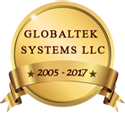Part- 1
Introduction to ASP.NET
- What is ASP.NET?
- Difference between Client side and Server side programming.
- Client-Server/3 Tier/N Tier Architecture.
- Role of ASP.Net as a technology HTML, JavaScript
- Difference between ASP & ASP.NET
- ASP.Net Page Execution architecture
- ASP.Net Worker Process
- ASP.NET Page Life Cycle Events
Part- 2
ASP.NET Web Forms
- Introduction to Web Forms
- Page Directive, Import Directive Working with HTML Controls
- Working with Web Server Controls Label, Textobox, Checkbox, RadioButton, ComboBox, ListBox, Literal, Image, Link Button, etc.
Part- 3
Validation Controls
- Required Field Validator
- Compare Validator
- Range Validator
- Regular Expression Validator
- Custom Validator (User Defined)
- Validation Summary Control.
Part- 4
Cookies
- Creating Client-side Cookies
- Handling Multiple Cookie Values
- Persistent Cookies
- Creating Http Cookies
Part- 5
Managing State
- Application Object, Session Object, Application and Session Events
- Cookieless Session State
- Global.asax file
Part- 6
ADO.NET
- ADO Vs ADO.NET
- Importance of ADO.NET
- Connection Object
- Data Adapter Object
- Dataset
- GridView Control
- Interacting with Oracle and SQL Server databases
Part- 7
Data Source Controls
- SQL Data Source
- Access Data Source
- Object Data Source
- XML Data Source
- SiteMap Data Source
Part- 8
GridView Control
- Retrieval Of All Records, Few Records, Retrievals based on Bound Columns, Button Column, Hyperlink Column.
- Retrievals based on Template Columns - HeaderTemplate, FooterTemplate, ItemTemplate, EditItemTemplate, AlternatingItemTemplate.
- Sorting Records Thru GridView
- Paging Records Thru GridView
- Editing and Records Thru GridView
- Manipulating GridView with Controls
Part- 9
Other DatabaseControls
- Repeater Control
- DataList Control
- Forms View Control
- Details View Control
Part- 10
ASP.Net Tracing
- Page Level and Application Level Tracing
Part- 11
Caching
- Page Level Caching
- Page Fragment
- Caching Data
- Caching Cache Dependencies
|
Part- 12
Web User Control
- Introduction to Web Forms
- Creating Web User Control
- Using Web User Control in Web Pages
Part- 13
Profile Object
- What is Profile Object?.
- Importance of Profile Object
- Creating Profile properties using Web.Config file
- Differences between Profile object and Session object
Part- 14
Navigation Controls
- Menu Control
- TreeView Control
- SiteMapPath Control - Web.SiteMap file
Part- 15
Master Pages and Content Pages
- Creating Master Pages
- Creating Content Pages
- Using Content PlaceHolder Control
- Using Content Control
- Using Navigation Controls in Master Pages
Part- 16
Themes and Skins
- Creating Themes
- Adding Skins to Themes
- Working with Named Skins
- Add CSS to Themes
- Applying Themes at Page Level, Application Level
- Working with Global Themes
- Disabling Themes
Part- 17
Configuring Web Applications
- Configuration Overview
- Web.Config
- Retrieving Configuration information
Part- 18
Security In ASP.Net
- Authentication
- Windows Authentication
- Forms Authentication
- Passport Authentication
- Authorization
- Authorizing Users and Roles
- User Account Impersonation
Part- 19
Login Controls
- Login
- Create User Wizard
- Change Password
- Password Recovery
- Login Name
- Login Status
- Login View
Part- 20
Web Parts
- Web Part Manager
- Web Part Zone
- Catalog Zone
- Editor Zone
- Connection Zone
- Personlization of web pages
Part- 21
XML & ASP.NET
- Overview of XML, Difference between XML and HTML, XML Elements, Attributes, Validation, Data Type Definitions(DTD’s), Valid XML Documents, Schemas, XSL, Using XML in ASP.NET, XML Text Reader and Text Writer Classes, Using XML with databases, etc.
Part- 22
Deploying Web Applications
Part- 23
Web Services
- Importance of Web Service in Real life, WSDL, SOAP, Creating Web Service, UDDI, Consuming Web Service.
Part- 24
Introduction to Mobile Programming
|



